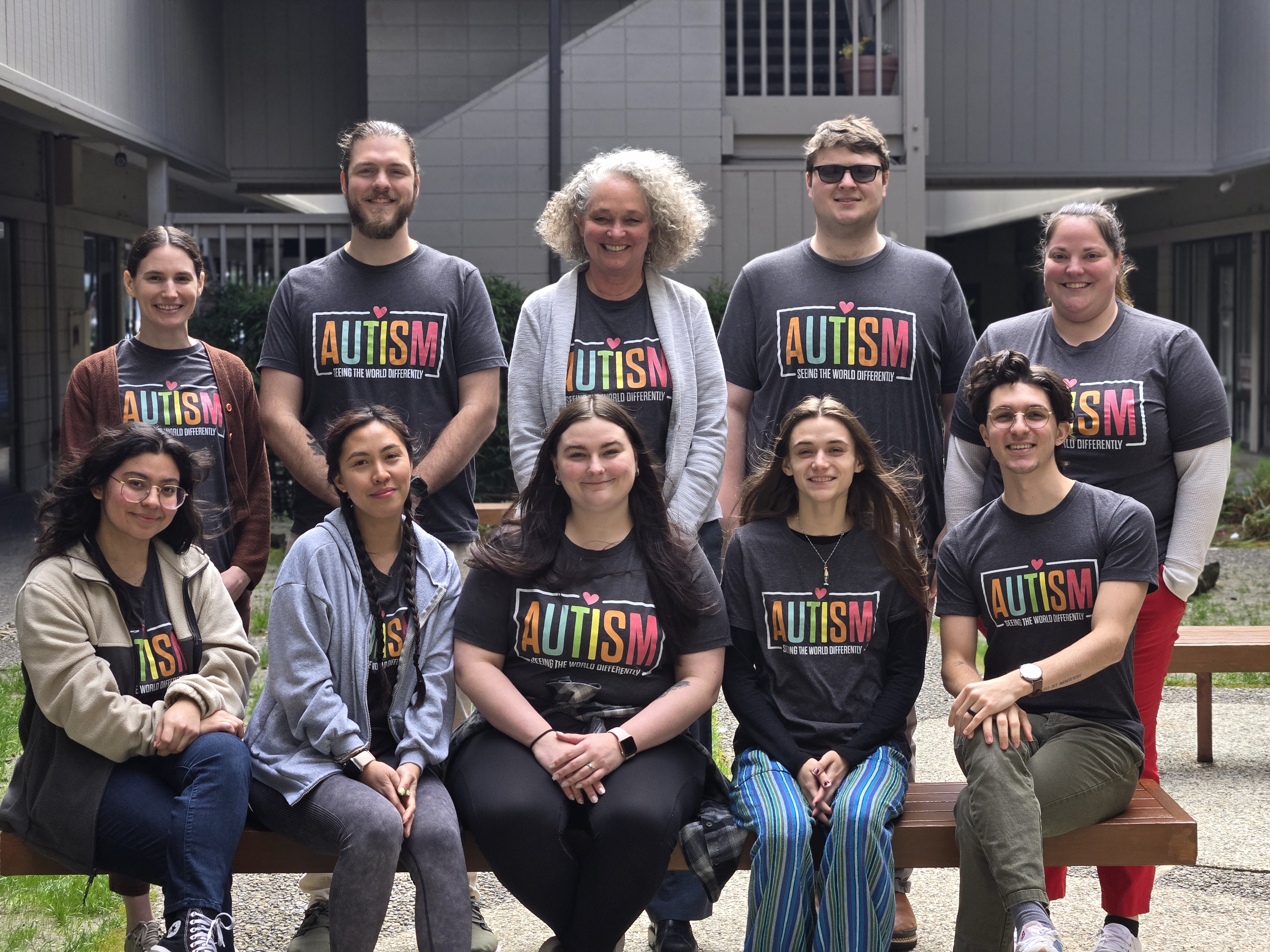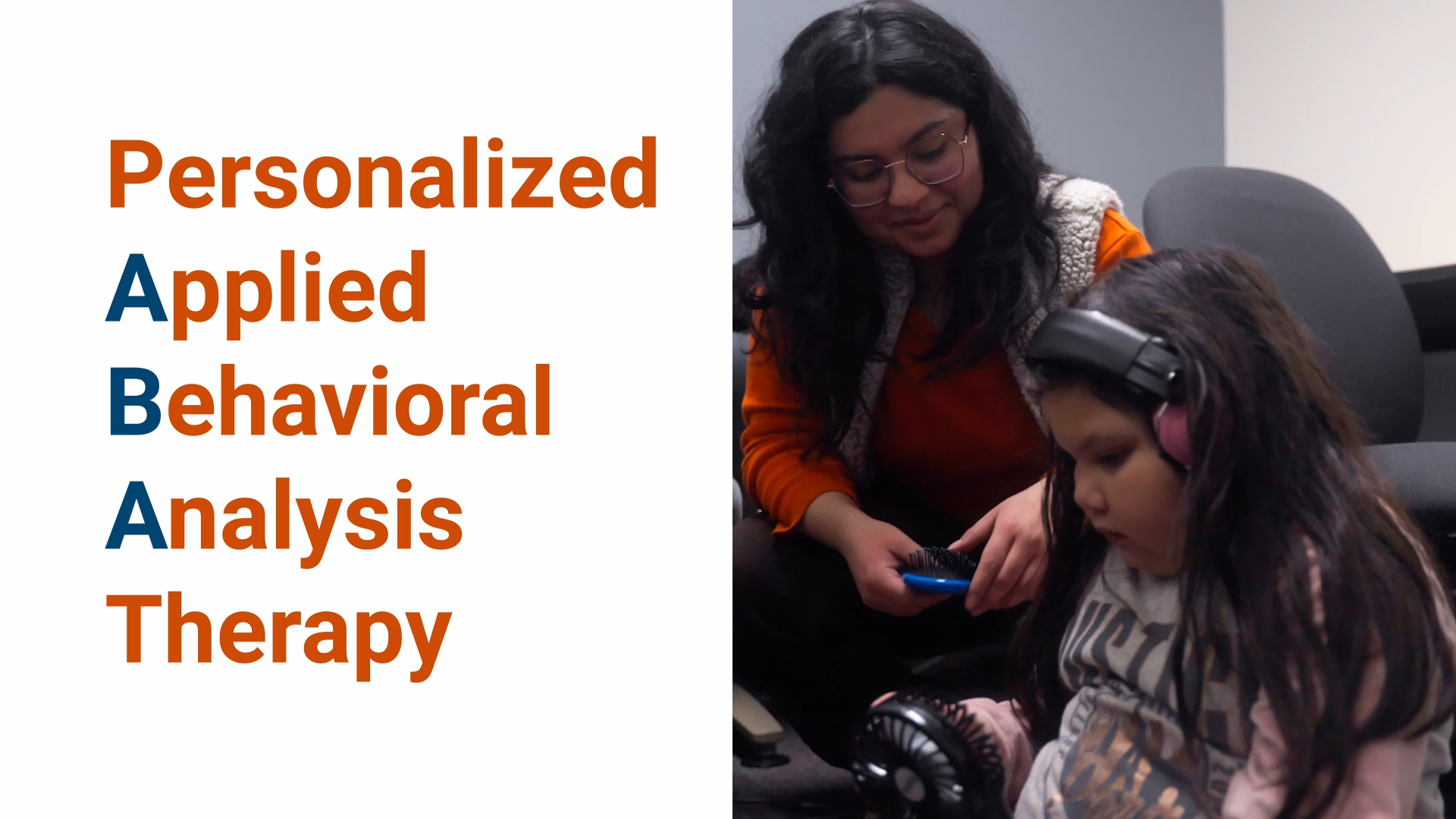
Bridging Autism Acceptance

April is Autism Acceptance Month—a time dedicated to promote understanding, embrace our differences, and advocate for the acceptance of people with autism in our communities.
At Easterseals Washington, autism acceptance reflects the work we do every day. Through the Olympic Peninsula Autism Center, we offer essential, personalized therapies for children on the autism spectrum, and their families. Across our statewide programs, we serve individuals with autism and all disabilities at every stage of life, empowering them to reach their full potential.
In this article, we’ll explore common questions, address prevalent misconceptions, and highlight the ways that you can help foster acceptance and provide meaningful support.
What does Autism Acceptance mean?
“Autism Acceptance means that all individuals with autism are supported in society,” Ericka Frink, Director of Easterseals Washington’s Olympic Peninsula Autism Center, shares. “Educating family and friends helps them understand the unique strengths and challenges individuals with autism may face.”

The team at Olympic Peninsula Autism Center during Autism Acceptance Month wearing shirts that say "Autism: Seeing the World Differently."
Recognizing Early Signs of Autism
Autism presents differently in each individual person, but there are common characteristics that can support an early diagnosis.
These signs often include:
- Social communication impairment
- Difficulties in social interactions
- Repetitive behaviors
- Restricted interests
Easterseals offers free access to the Ages & Stages Questionnaires®, Third Edition™ (ASQ-3). The ASQ-3 is a set of questionnaires that helps you track your child’s development from one month through age 5.This screening provides a quick look at how children are doing in important areas, such as communication, physical ability, social skills, and problem-solving skills.
ASQ-3™ is designed for screening, not diagnosis. If you have concerns about your child, seeking a professional evaluation is a vital first step.
Addressing Myths About Autism
Education is key to broader acceptance and understanding. Here are some common myths about autism:
- “Autism is solely a male condition” — Autism affects individuals of all genders.
- "Individuals with autism are anti-social" — People on the autism spectrum may socialize differently, however, this does not mean they are anti-social.
- "Autism can be cured” — There is no cure for autism, but early behavioral interventions can enhance communication, social interactions, and adaptive skills. People with autism offer a valuable perspective on the world that should be embraced and accepted.
Addressing these myths, Ericka provides insight, "Autism is a complex condition that affects individuals differently. At Olympic Peninsula Autism Center, we address these misconceptions by raising awareness and sharing evidence-based information.”
The Role of Applied Behavioral Analysis Therapy

“Applied Behavior Analysis (ABA) therapy focuses on building essential skills in communication, social interaction, and daily living while reducing challenging behaviors through evidence-based strategies,” Ericka Frink shares.
Intensive ABA therapy leads to improved cognitive, language, and adaptive functioning, enhancing long-term independence and quality of life. By tailoring interventions to each child's unique needs, ABA therapy equips children with foundational skills necessary for success in school and relationships.
Supporting Parents and Caregivers

Navigating a new autism diagnosis can feel overwhelming and challenging. At Olympic Peninsula Autism Center, our providers educate parents and caregivers navigating a new autism diagnosis by providing evidence-based information while offering emotional support.
By sharing information about autism in an accessible and strengths-based way, we equip parents and caregivers with practical strategies for communication, behavior management, and daily routines. Additionally, we guide them through available services, advocate for their child’s needs, and connect them with support networks.
How You Can Support Autism Acceptance

Every individual with autism is unique and has varying support needs. You can practice autism acceptance by:
-
Treating everyone with respect and dignity.
-
Recognizing that each person with autism has unique experiences.
-
Recognizing that differences in communication do not equate to a lack of understanding.
-
Look for ways to include and be of support to people with autism
Since 1947, Easterseals Washington has been empowering children and adults with disabilities to reach their full potential by elevating mobility, expanding employment opportunities, enriching education, enhancing health, and engaging community.
By joining the Giving Circle, your monthly contribution can provide children and adults with disabilities the tools and support needed to reach their full potential.
